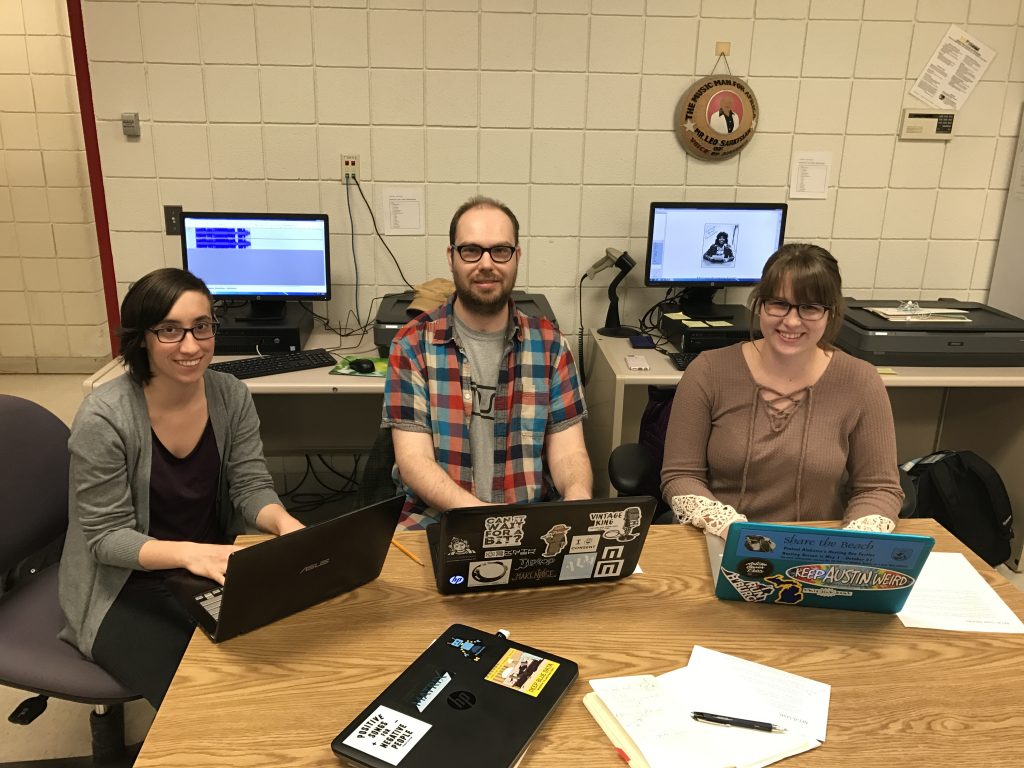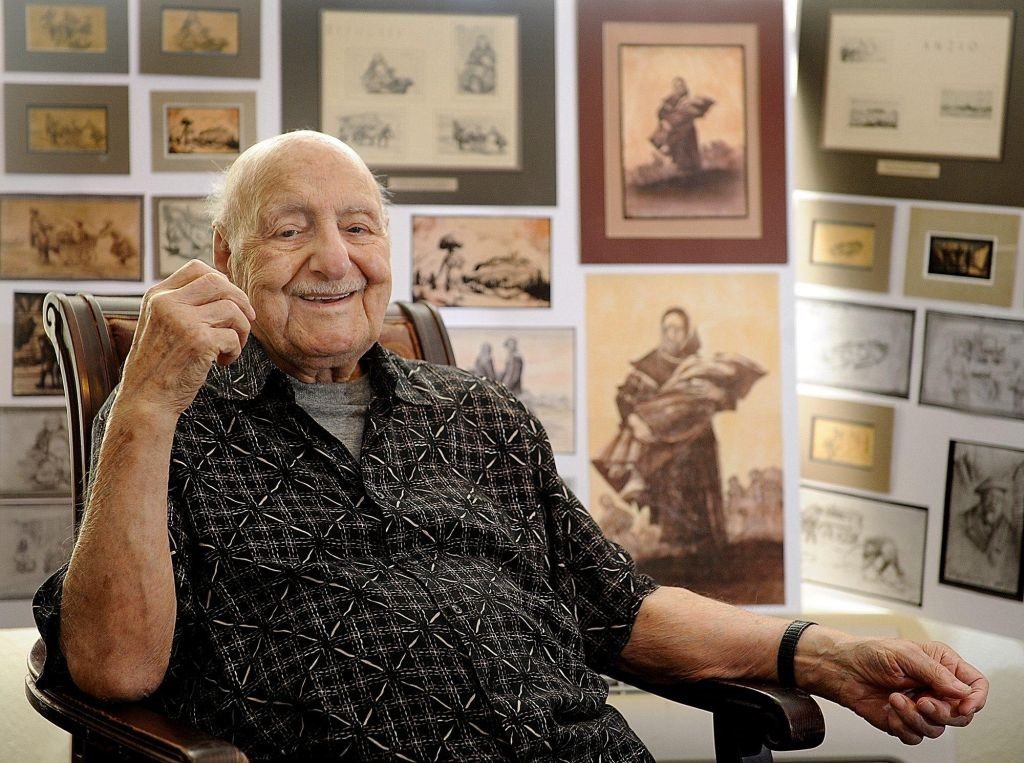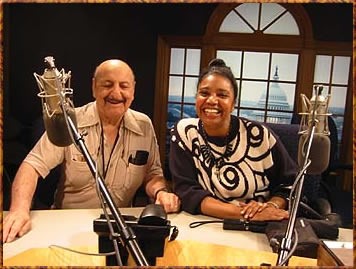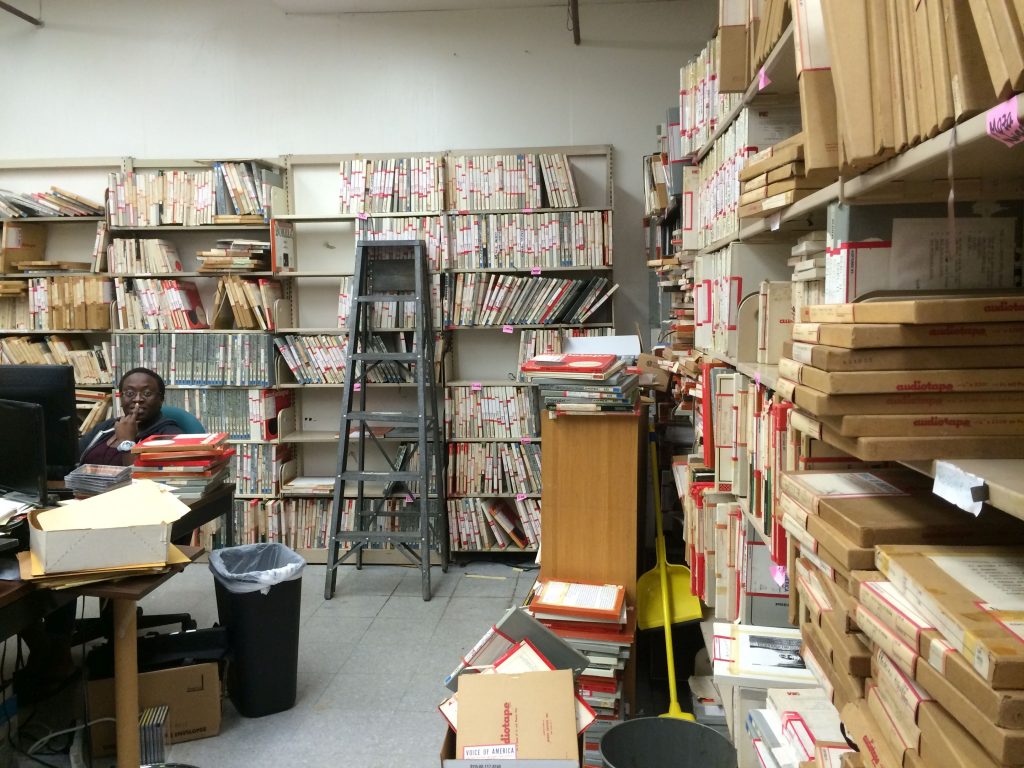
Welcome to our new website!
Welcome to the newly redesigned website for the Music Time in Africa Archive! We are pleased to provide online access to over 600 digitized radio programs from the Leo and Mary Sarkisian Collection at the University of Michigan. This blog post is an overview of what you will find here.

In addition to this Blog, the Music Time in Africa Archive website contains three informational sections and a direct link to listen, browse, and read the radio programs.
The section “Access to Music Time in Africa,” illustrated with a lovely image of a spinning reel-to-reel tape recorder, provides information about getting to the Music Time in Africa radio programs of yesterday and today. The first link takes you to the listening platform. You can also link to the radio programs in the “Listen” link in the header of every web page. A second link takes you to the Voice of America’s ongoing digital broadcasts of Music Time in Africa. Heather Maxwell hosts the weekly hour-long program. The third link requires a University of Michigan login because some of the information there is not yet publicly available. The fourth link goes to an online finding aid for over 360 recordings that Leo Sarkisian made in Africa in the 1960s and 1970s. Eventually, we hope to make these recordings available through this website.
The section “Leo & Mary Sarkisian Collection” includes an illustrated biography of the “Music Man for Africa,” and an illustrated description of the audiovisual materials and musical instruments that are part of the Collection at the University of Michigan.
A third section is all about the sponsors who have made it possible for us to acquire, organize, and make available the Music Time in Africa tape recordings. In particular, we wish to recognize the ongoing support of the African Studies Center at the University of Michigan and a generous grant provided by the National Endowment for the Humanities.
In welcoming you to the new website, we wish to acknowledge and thank Walker Boyle for his technical creativity and perseverance in building and supporting the radio program delivery platform, which is now hosted by the University of Michigan School of Information. UMSI graduate student Jordan Gorzalski designed and built this website on WordPress.
We hope you enjoy exploring the rich content at this site. Let us know what you think by contacting us through the link at the bottom of the page.
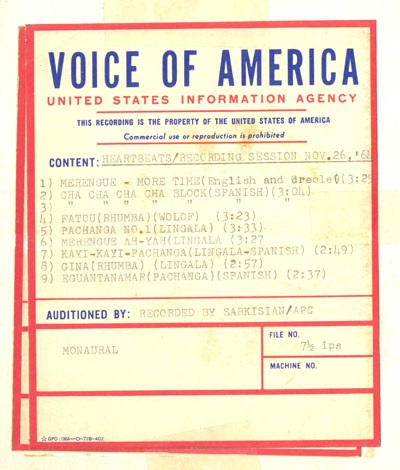 Music Time in Africa has been on the air for over 50 years. From the first program, broadcast in May 1965, through the program in June 2012, the one thing that stayed the same was the theme song. In 1964, program director Leo “Music Man for Africa” Sarkisian had two recording sessions with the popular group, The Heartbeats of Sierra Leone, in the Voice of America African Program Center in Monrovia, Liberia. According to former program host Matthew Lavoie, Leo first heard The Heartbeats play a set at the Ducor International Hotel and invited them to come to the studio to record. They produced sixteen tracks over the two recording sessions.
Music Time in Africa has been on the air for over 50 years. From the first program, broadcast in May 1965, through the program in June 2012, the one thing that stayed the same was the theme song. In 1964, program director Leo “Music Man for Africa” Sarkisian had two recording sessions with the popular group, The Heartbeats of Sierra Leone, in the Voice of America African Program Center in Monrovia, Liberia. According to former program host Matthew Lavoie, Leo first heard The Heartbeats play a set at the Ducor International Hotel and invited them to come to the studio to record. They produced sixteen tracks over the two recording sessions.
